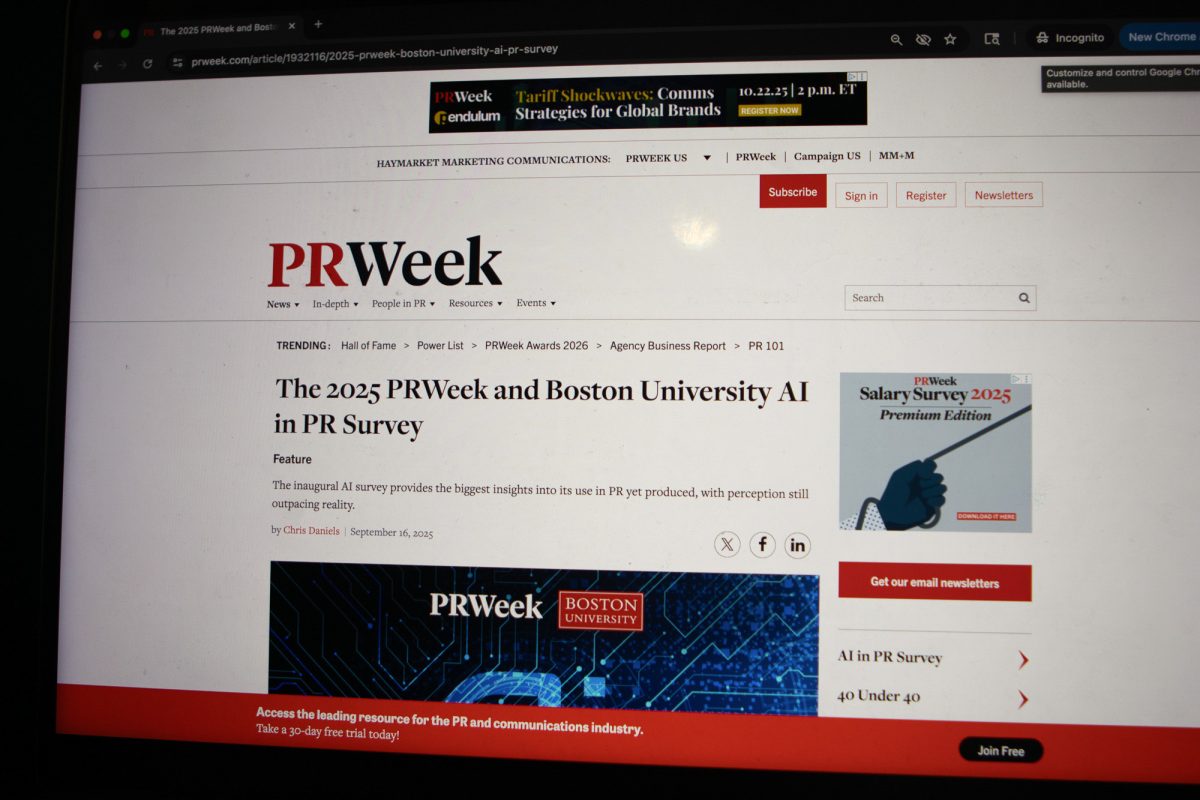Boston University’s Young Democratic Socialists of America is campaigning for free laundry on campus.
BU’s laundry prices are exorbitantly high for a college campus. At $1.75 for each wash and dry cycle, laundry expenses can quickly add up for students — especially when tiny washers and feeble dryers often force us to do more than one load a week.
Laundry is an essential utility, but is not covered by the — also expensive — cost of students’ room and board. If we are going to pay for overpriced dorm rooms, we could at least have our laundry accommodated for.

However, asking the University to completely do away with the cost of laundry is imposing a difficult demand. In addition to an extensive COVID-19 testing system on campus, the University is dealing with furlows and salary freezes as a result of the pandemic.
It’s more feasible to adjust the budget and price of laundry rather than wishfully hoping the University can simply decide to do away with this revenue altogether.
We must also wait to make this demand until we have a better understanding of how our laundry money is being spent. As of now, the student body doesn’t have enough information to claim the University is making a large profit off of laundry.
Many students want to protect their low-income peers from the inherent disadvantage they face from the cost of laundry. However, the majority of services on a college campus are not extremely accommodating for low-income students to begin with.
Major expenses such as housing and dining may be covered by financial scholarships, which is a relief for students who cannot afford those burdens. A part-time job can cover $10 worth of laundry a month if necessary. It is unreasonable to ask the University to make numerous services free — we don’t even know how our laundry money is spent.
BU YDSA aims to gain a better understanding of how much laundry actually costs the University through an independent audit.
If it does account for a large portion of the University’s budget, then our tuition could be majorly affected. The University may have to increase tuition to cover the costs of free laundry. Not to mention, the BU’s implementation of its new Greenwald Pay system would have been a wasted effort and expense.
It is entirely understandable that the University wouldn’t immediately enact the demands students are making. On top of being a nonprofit institution, this year’s economic recession has affected the University’s spending in ways some students overlook.
So, we most likely cannot afford to cut the cost of laundry without cutting another service on the budget, or increasing the cost of something else.
Depending on the results of the audit BU YDSA will hopefully obtain, we can better determine the plan of action. If our money is simply funneled to President Robert Brown’s salary, for example, then we can demand an adequate change to the price of laundry.
But if our money is going toward utilities such as upkeep of COVID-19 testing sites or other important campus services, then our money is well-spent. We don’t have proof the University is profiting off of our dirty clothes, and we can’t make such a rash demand while ignoring the potential repercussions.
Still, it is important to look at how BU is spending its money in general and determine what we could prioritize or where there is room for change. Some of the services we pay for could be transitioned into an opt-in program, such as the semester Sports Pass. Further, instead of requiring every student to pay for a Fitness and Recreation Center membership, they could choose whether to do so.
This year’s tight budget will suffer even further should the University lower or eliminate the cost of laundry services. But, if they are in fact profiting off our laundry, then we have substantial ground to argue for lower prices. We should be able to wash and dry our clothes without shelling over our spending money to a University that charges $70,000 a year.

















































































































Concerned Launderer • Nov 24, 2020 at 11:22 am
It’s also important to consider the ecological impacts of free laundry. Having some cost de-incentives wasteful students from running partial loads that waste water.
Nick Marchuk • Nov 24, 2020 at 9:46 am
This is an extremely embarrassing opinion piece — and it’s telling that the author won’t put their name on it. Whether or not free laundry is feasible or not, I can assure you that Pres. Brown does not need you to defend him.
Anonymous • Nov 24, 2020 at 1:07 am
It’s very disheartening as a low income student that the DFP would comment something like “ the majority of services on a college campus are not extremely accommodating for low-income students to begin with.” That doesn’t mean stop trying to make a change. The system was never in place to serve low-income students like myself and we need to make it more accommodating. Stating that we could get a part time job to pay for laundry is also a disgusting argument because most low income students are also on work-study. I’m working to finishing paying off the other overpriced aspects of my studies so I’m sorry if I’m not able to pick up ANOTHER job to pay for something that so many other universities give to their students for free.
This article was insensitive , clearly did not come from a low-income student because I cannot imagine one that would make arguments like these as if they were as black as white as they are being portrayed, and I wish that whoever wrote or edited this piece does learn how much low-income students struggle especially when our families aren’t supporting us financially or when we have to get an education, support ourselves, and financially support our families. We don’t have the financial stability that so many other people at this University have.
Anthony Buono • Nov 23, 2020 at 12:00 pm
As activists we expect the press to be pessimistic about any form of change, but the DFP suggesting that because all services are expensive, changing one will not help is incredibly disheartening. This type of message tells students to sit down when they see injustice. To make students feel the world is too big to be changed. Well, it is not too big, and we will change it, one wash at a time.
Sign up with this link here: https://rb.gy/j7qivy and join with 602 of your peers who already have